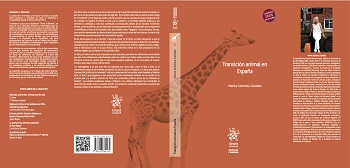Results
| Title | Citation | Alternate Citation | Agency Citation | Summary | Type |
|---|---|---|---|---|---|
| TN - Nashville - Title 8 - ANIMALS | Title 8 - ANIMALS |
These are the animal ordinances for the Metro Government of Nashville and Davidson County, Tennessee. These laws include dog laws (including vicious dogs), wildlife and animal control regulations. |
Local Ordinance | ||
| Gonzalez v. Royalton Equine Veterinary Services, P.C. | 7 N.Y.S.3d 756 (N.Y. App. Div. 2015) | 2015 N.Y. Slip Op. 03632 | Veterinarian contacted State Police after allegedly observing deplorable conditions in Plaintiff's barn. The premises were subsequently searched, and a horse and three dogs were removed and later adopted. Plaintiff commenced an action in City Court for, inter alia, replevin, and several defendants asserted counterclaims based on Lien Law § 183. The Lockport City Court entered partial summary judgment in favor of owner and ordered return of animals. On appeal, the Niagara County Court, reversed and remanded. Owner appealed to the Supreme Court, Appellate Division, Fourth Department, New York. The Court found the Niagara County Society for the Prevention of Cruelty to Animals, Inc. (SPCA) was not required to bring a forfeiture action to divest Plaintiff of ownership of the seized animals because the animals were kept in unhealthful or unsanitary surroundings, the plaintiff was not properly caring for them, and the plaintiff failed to redeem the animals within five days before the SPCA was authorized to make the animals available for adoption. The city court’s order was affirmed as modified. | Case | |
| Tunisia - Cruelty - Animal Transport (in French) | Journal officiel de la République tunisienne nº 6, 19 janvier 2007, p. 189 à 191. | This Order, in French, establishes the technical and sanitary requirements for the transport of animals subject to the procedures of identification. These conditions are designed to ensure the comfort of the animal. | Statute | ||
| NH - Importation of Wildlife - Chapter Fis 800. The Importation, Possession and Use of All Wildlife | NH ADC FIS 803.01 - .14 | N.H. Code Admin. R. Fis 803.01 - .14 | These New Hampshire regulations require an importation permit for any controlled species that are imported into the state; these regulations also state that a permit is not required for a non-controlled species, which are listed in the regulations, and that a prohibited species, which are also listed in the regulations, cannot be imported into the state with or without a permit. The regulations also state the requirements for obtaining an importation permit, the provisions for importing certain species, the pathological standards for inspecting imported fish, and what needs to be included in the form to obtain an importation permit. | Administrative | |
| IL - Police animals - 50/3.55. Scope of practice | 210 I.L.C.S. 50/3.55 | IL ST CH 210 § 50/3.55 | This Illinois law provides that an EMR, EMT, EMT-I, A-EMT, PHRN, PHAPRN, PHPA, or Paramedic may transport a police dog injured in the line of duty to a veterinary clinic or similar facility if there are no persons requiring medical attention or transport at that time. For the purposes of this subsection, “police dog” means a dog owned or used by a law enforcement department or agency in the course of the department or agency's work, including a search and rescue dog, service dog, accelerant detection canine, or other dog that is in use by a county, municipal, or State law enforcement agency. | Statute | |
| TX - Cruelty - Consolidated Cruelty Statutes | V.T.C.A., Penal Code § 42.09; § 42.091; § 42.092; § 42.10; § 42.105; § 42.107 | TX PENAL § 42.09; § 42.091; § 42.092; § 42.10; § 42.105; § 42.107 | These comprise Texas' anti-cruelty laws. Texas has laws that prohibit cruelty to both livestock (sec. 42.09) and non-livestock animals (sec. 42.092). Both laws requires a scienter of intentionally or knowingly, and enumerate limited defenses. "Animal" means a domesticated living creature and wild living creature previously captured but does not include an uncaptured wild creature. Also included is Texas animal fighting provision, which criminalizes being a spectator at an animal fighting exhibition among other things. In 2011, Texas enacted a law prohibiting cockfighting. | Statute | |
| Animal Transition in Spain |
|
Policy | |||
| Connecticut General Statutes: Chapter 333: Sections 6402-6405 | Conn. Gen. Stat. §§ 6402-6405 (1918) | Sections 6402-6405 of Chapter 333 from the 1918 General Laws of Connecticut covers offences against humanity and morality. Specifically, the statutes cover following topics: animal cruelty, transportation of animals, and docking of horses. | Statute | ||
| Ivey v. Hamlin (Unpublished) | 2002 WL 1254444 (Tenn.Ct.App.)(Not reproted in S.W.3rd) |
This is an action for damages for the deliberate killing of a dog by a Deputy Sheriff that was alleging terrorizing the neighborhood. In finding for defendant-officer, the court noted that the consensus among the courts is that a vicious dog is a public nuisance and that governments and their agents have broad power to protect the public from these animals. The court thus found the officer acted reasonably under the circumstances and had a qualified immunity defense. |
Case | ||
| Revista Brasileira de Direito Animal Volume 10 |
Brazilian Animal Rights Review
|
Policy |
